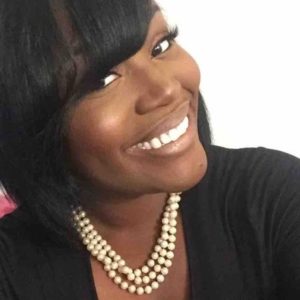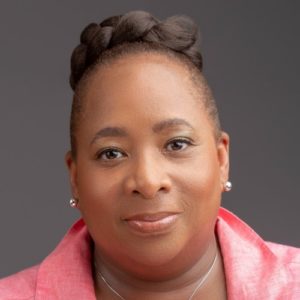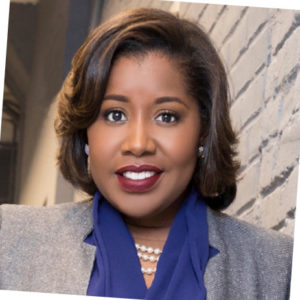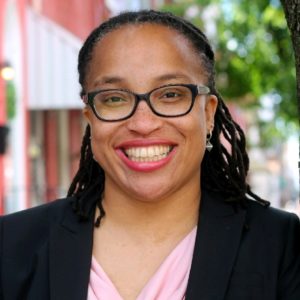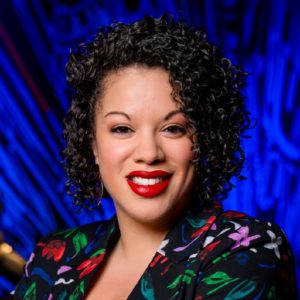5 lessons from Black Women in PHLanthropy
 August 10, 2020
Category: Featured, Long, Purpose
August 10, 2020
Category: Featured, Long, Purpose
Disclosures
This guest column was written by Monique Curry-Mims, the founder and principal of Civic Capital Consulting, and founder of PHLanthropy Week.Updates
Update: The underwriting disclosure was updated to reflect that "Black Philanthropists" editorial calendar month is being underwritten by Equally Informed Philly, a free service of Resolve Philly. (8/17/20 at 5:45 a.m.)The saying “hindsight is 20/20” suggests it is easy to know what is right after the fact.
What is clear in philanthropy’s hindsight is that at the heart of every solution, Black and brown women have been integral to the impact and love of humanity within the Black and underserved community.
- In the 1780s, it was the deaconesses that collected resources and spoke out against injustices that launch the African American philanthropic movement.
- In the 1800s, the original suffrage movements led by Harriet Tubman and Sojourner Truth fought for racial equity and later voting rights and empowerment for the African American community.
- In the 1960s, Black women like Georgia Gilmore cared for civil rights protesters while women such as Dorothy Height provided council for the leaders and fundraising for the movement.
- Today, women such as Tarana Burke and Kimberlé Crenshaw have respectively led our war cries of #MeToo and #SayHerName.
What is clear is that Black and brown Women have been at the forefront — giving love and leadership, but never fully getting the credit and support that they deserve.
As we celebrate 2020’s Black Philanthropy Month, what if we take a moment to adjust our philanthropic practices and begin to truly respect the insights of Black and brown women? What if we give them the power and agency that they deserve, so they can do what they do best —love on Philadelphia’s communities to move the philanthropic and nonprofit sector forward.
What does that look like? Here are a few lessons that Black Women in PHLanthropy have to offer.
1. Partnership, not saviorism is key
Bethany Stewart
Core organizer
Philadelphia Community Bail Fund
It is, in fact, impossible to support a person that you do not view as fully whole and capable. We are not saviors! We must listen to, value, and act on the ideas expressed by those most affected. We must not tokenize or fetishize their stories. We must view them as equals, in fact, we must regard them as the experts and thus capable of more valuable insight than us.
❧
2. Move forward with compassion
Donna Frisby-Greenwood
President and CEO
Fund for the School District of Philadelphia
Nonprofit leaders should not grow comfortable with their work; when we do, it only means that we have lost sight of the inequities and issues that we are trying to address. The nonprofit sector must recognize that the needs of our community are changing more quickly today than ever before. We can and always should do better, and we should ask ourselves how else we can move forward with compassion.
❧
3. Passion clouds judgement
Christina Mattison
President and CEO
Mattison Advisors, LLC
“Philanthropy is commendable but it must not cause the philanthropist to overlook the circumstances of economic injustice which make philanthropy necessary.” This quote from Dr. Martin Luther King Jr. reminds us all of the importance of our work, the inequities still present and the work ahead of us. Often in philanthropy, passion clouds judgment. Excitement leads to urgency which leads to action without diligence. Philanthropy often occurs before due diligence has taken place to understand the root causes and the most effective and sustainable solutions. Accuracy of solution can only be achieved through the inclusion and empowerment of our community who is most informed as to the issues that we are working to solve.
❧
4. There must be a reckoning
Farrah Parkes
Executive director
Gender Justice Fund (formerly New Century Trust)
Philanthropy must have a reckoning with itself about its ultimate purpose. Right now, most foundations act as if their goal is to give away money for as long as possible. I think the most powerful philanthropic entities see their role as change agents, so they’re willing to do more than write checks – they organize, and they get behind issues for the long term. They commit to mission-aligned investing, and they also are strategic about spending and are more willing to go beyond the 5% payout requirement, balancing the desire for some longevity with the immediacy of the present needs.
❧
5. We must see the bigger picture
Tiffany Tavarez
VP, Northeast Community Relations – Sr. consultant
Wells Fargo Corporate Philanthropy & Community Relations Group
Our inability to fully acknowledge the inequity in our problems will always cultivate further inequity in our solutions to address them. Those who work in the philanthropic sector must be as intentional as the systems they want to change and as inclusive as they want their impact to be. My career has been curated to include multiple perspectives in different landscapes — from nonprofit, foundation, to university and corporate — as well as a myriad of diverse volunteer experiences. This doesn’t just help me identify opportunities for more thoughtful investment; this has provided me a bigger picture of why I had to sign up for the free lunch program at school.
❧
Whether their professional practices or personal positions, Black and brown women have the expertise and understanding that the we need to make the decisions and investments that will effectively lift our community. For the love of humanity, let’s listen.
Trending News








